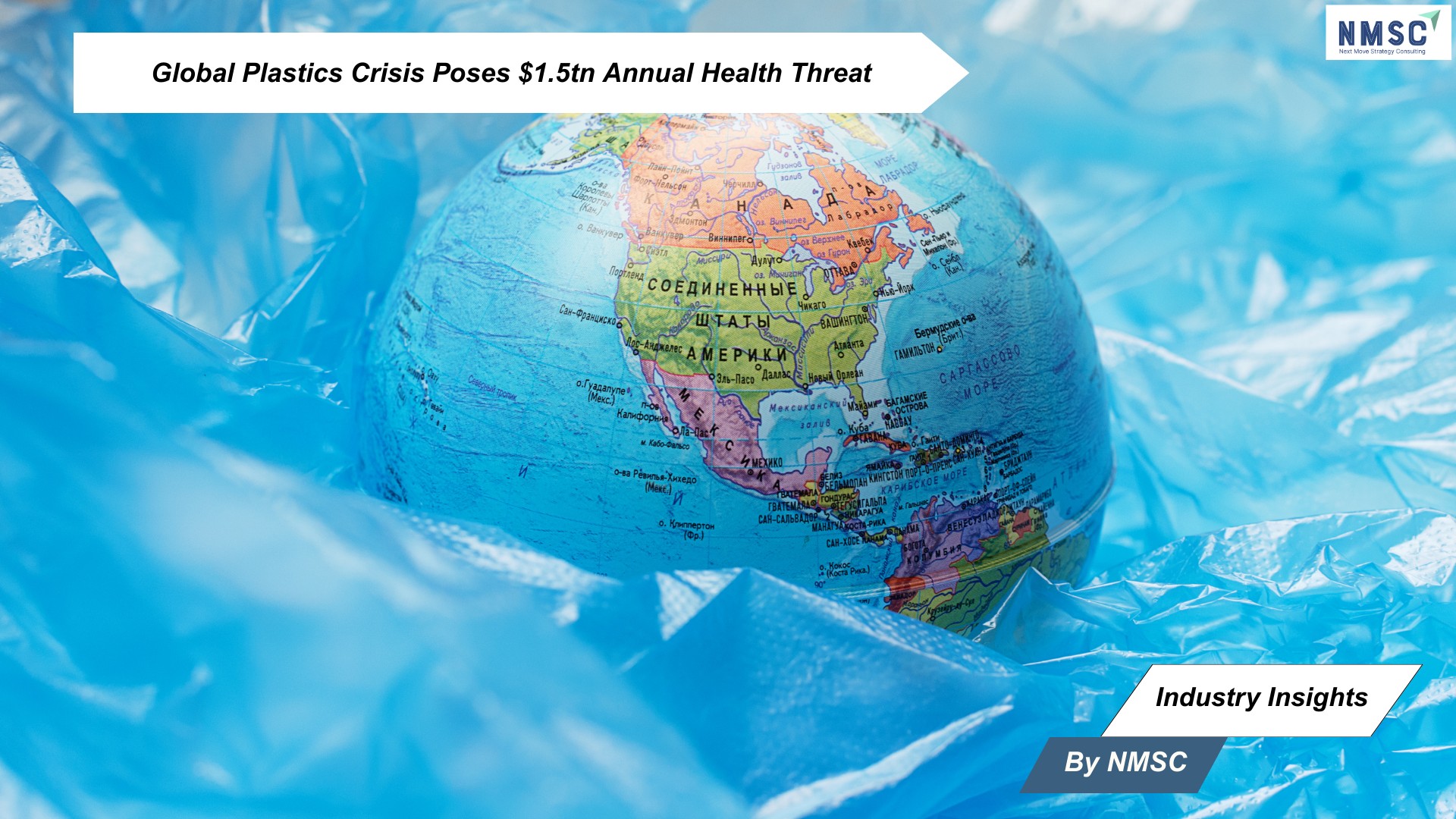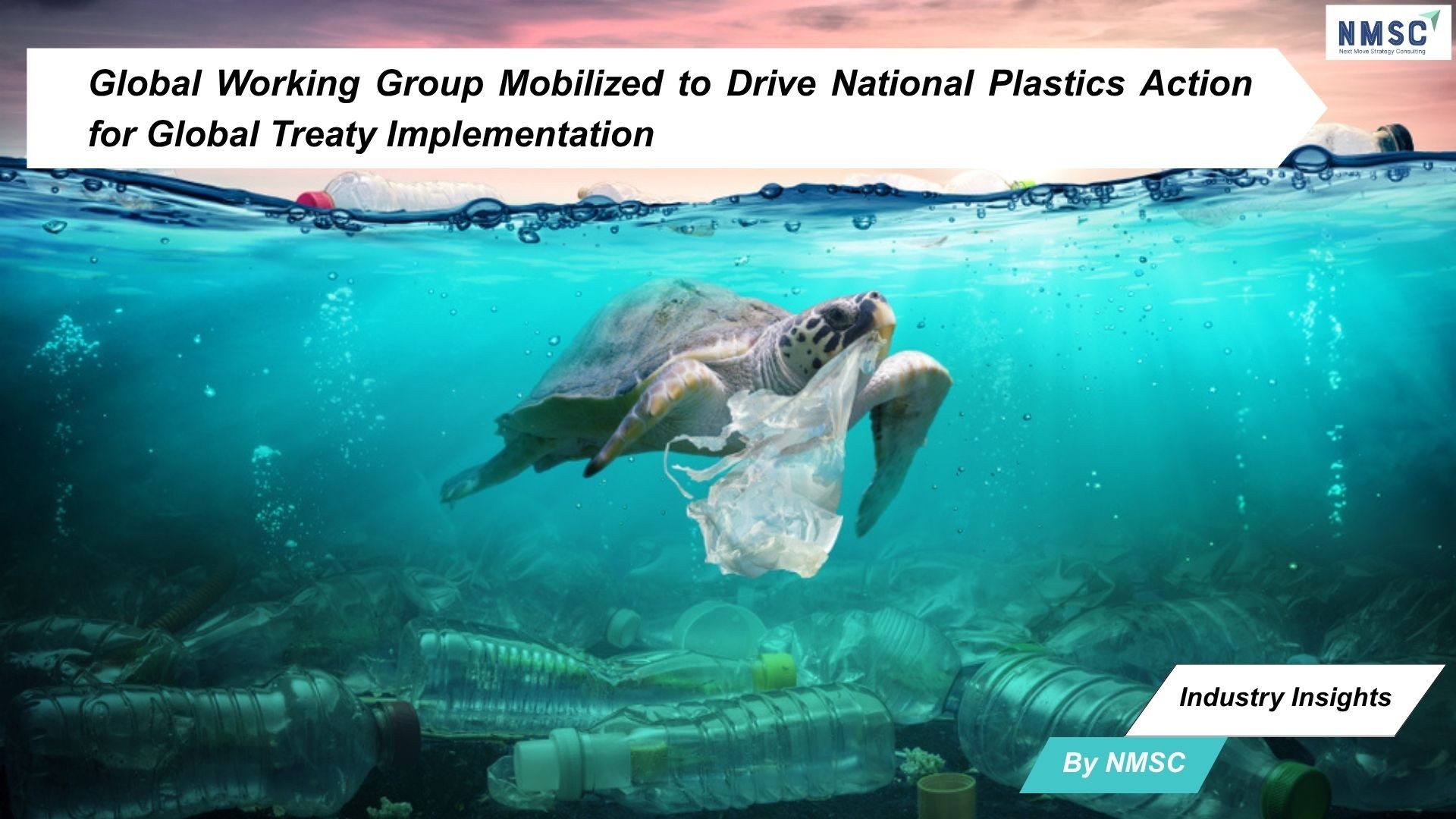Global Plastics Crisis Poses $1.5tn Threat to Human and Planetary Health, Lancet Report Warns
Published: 2025-08-14

Industry Insights from Next Move Strategy Consulting
As plastic production surges, a landmark review published in The Lancet reveals a deepening global plastics crisis, endangering human health from infancy to old age and costing society at least $1.5 trillion (£1.1tn) annually in health-related damages. With production rising over 200 times since 1950 and projected to nearly triple to over a billion tonnes by 2060, the report underscores the urgent need for a robust global response.
A Growing Threat Across the Plastic Lifecycle
The crisis stems from the exponential growth of plastic production, particularly single-use items like drinks bottles and fast-food container. Since 1950, 8 billion tonnes of plastic have polluted the planet, from Mount Everest’s peak to the deepest ocean trenches, with less than 10% recycled.
The Lancet review highlights risks at every stage—from fossil fuel extraction and energy-intensive production to use and disposal—driving air pollution, toxic chemical exposure, and microplastic infiltration into human bodies.
“The plastics crisis is a grave, growing, and under-recognised danger,” says Prof Philip Landrigan, lead author and paediatrician at Boston College. “It disproportionately harms vulnerable populations, especially infants and children, and demands immediate action to protect human and planetary health.”
Key Impacts at a Glance:
-
Health Risks Across Life Stages: Exposure to plastics is linked to increased risks of miscarriage, premature birth, stillbirth, birth defects, impaired lung growth, childhood cancer, and fertility issues.
-
Microplastic Infiltration: Micro- and nano-plastics have been detected in blood, brains, breast milk, placentas, semen, and bone marrow, with emerging links to strokes and heart attacks.
-
Environmental Harm: Plastic waste fosters disease-carrying mosquito breeding sites and contributes to 2 billion tonnes of CO2 emissions annually, exceeding Russia’s emissions.
-
Toxic Chemical Exposure: Over 16,000 chemicals in plastics, including fillers and flame retardants, lack transparency and are linked to widespread health effects.
-
Economic Toll: Health damages from just three plastic chemicals (PBDE, BPA, DEHP) cost $1.5tn yearly across 38 countries.
Recycling Falls Short, Treaty Talks Falter
Despite calls from petrostates and the plastics industry to focus on recycling, the report dismisses this as an inadequate solution. Unlike paper or metals, plastics’ chemical complexity makes recycling inefficient, with over half of unmanaged waste burned in open air, worsening air pollution. As the sixth round of negotiations for a legally binding global plastics treaty approaches, over 100 countries support capping production, while petrostates like Saudi Arabia resist, stalling progress.
A Call for Urgent Action
The Lancet review, the first in a series tracking plastics’ impacts, urges policymakers to prioritize human and planetary health in treaty negotiations. “These reports will provide a robust, independent data source to shape effective policies,” says co-author Margaret Spring, a senior lawyer. With plastics’ health and environmental toll escalating, the report advocates for a precautionary approach to limit production and mitigate harm.
Toward a Healthier Future
As plastic pollution infiltrates ecosystems and human bodies, the Lancet report signals a critical moment for global action. With mounting evidence of health risks and economic costs, the upcoming plastics treaty offers a pivotal opportunity to address this crisis and safeguard vulnerable populations worldwide.
Prepared by: Next Move Strategy Consulting
















Add Comment